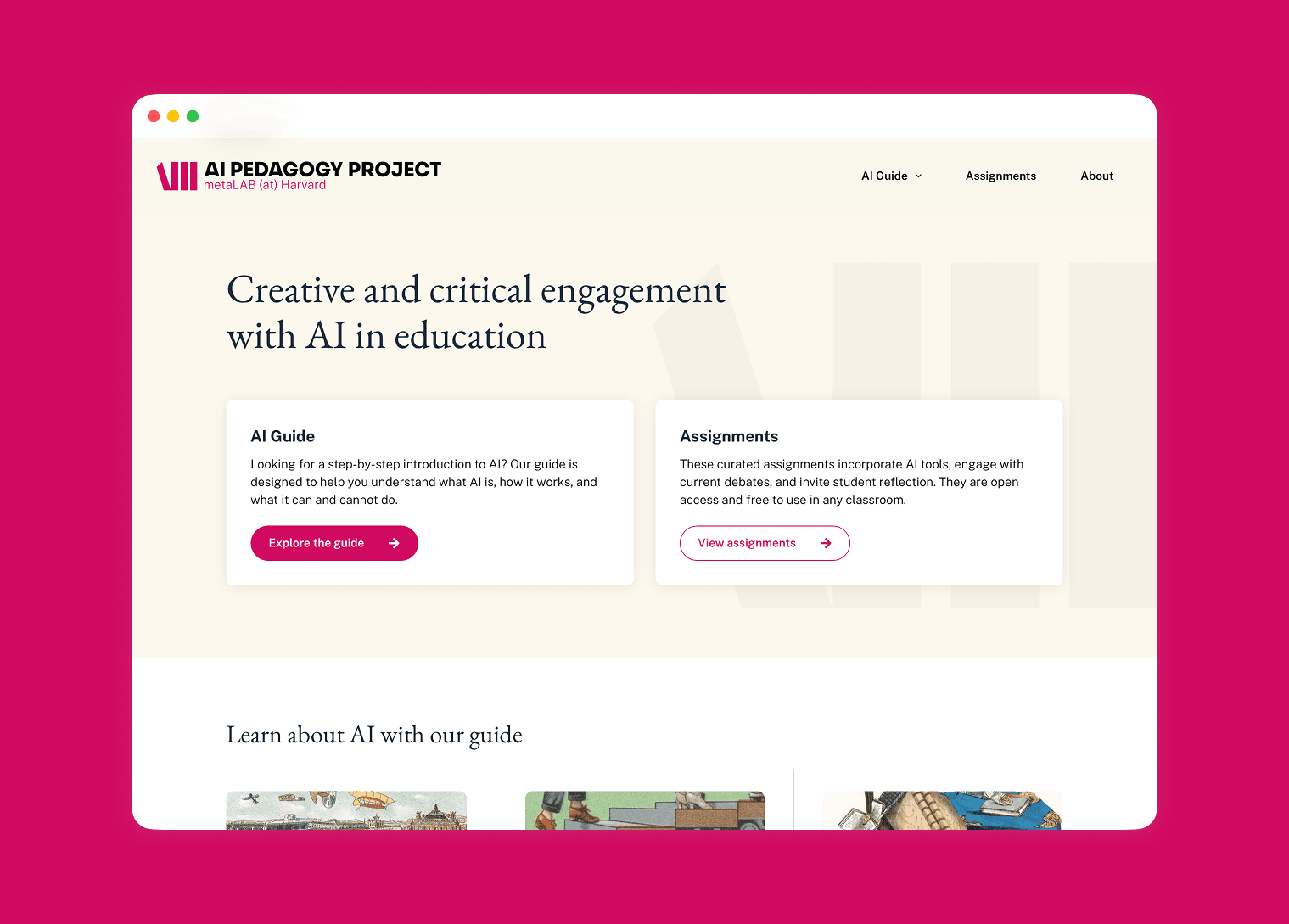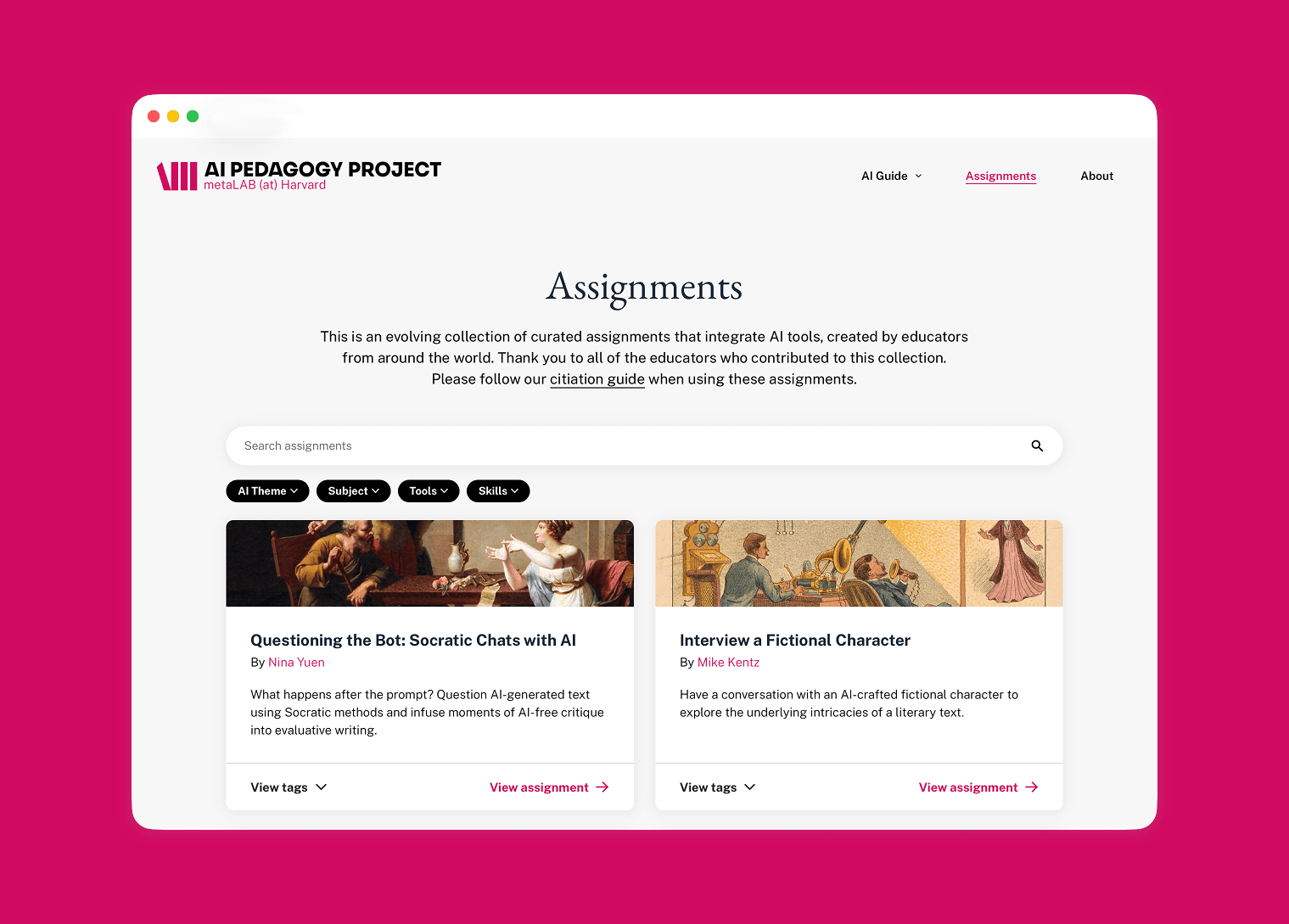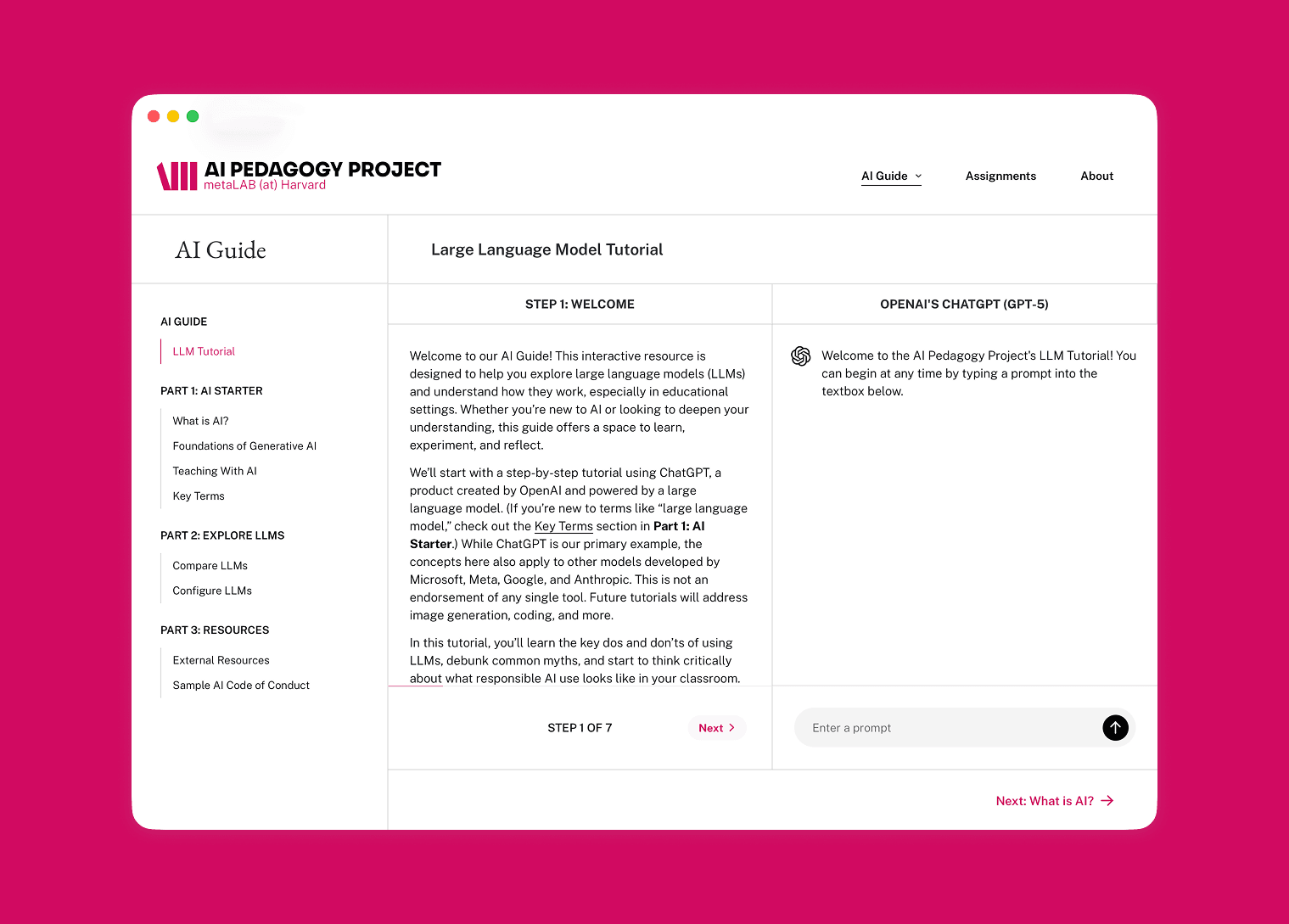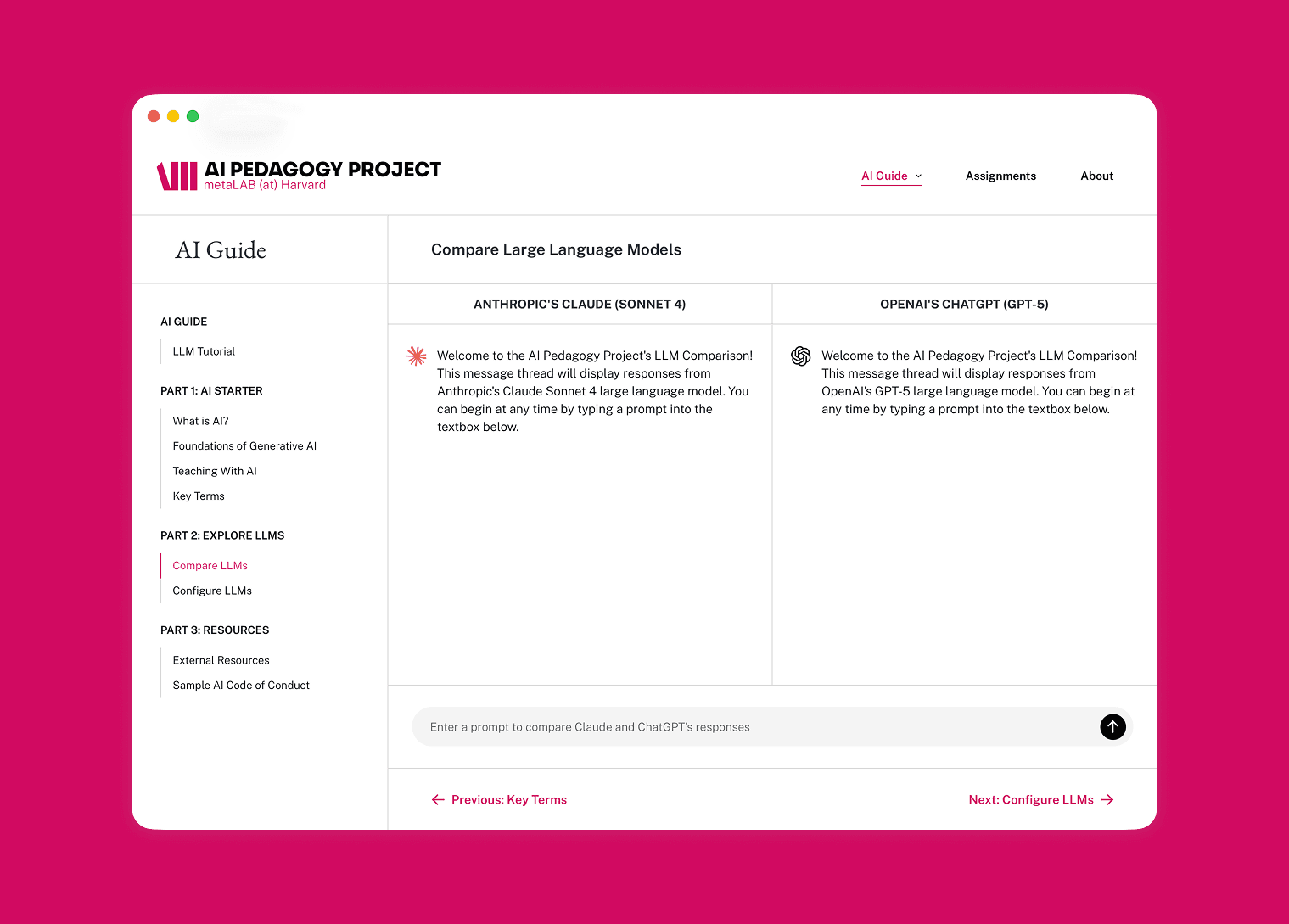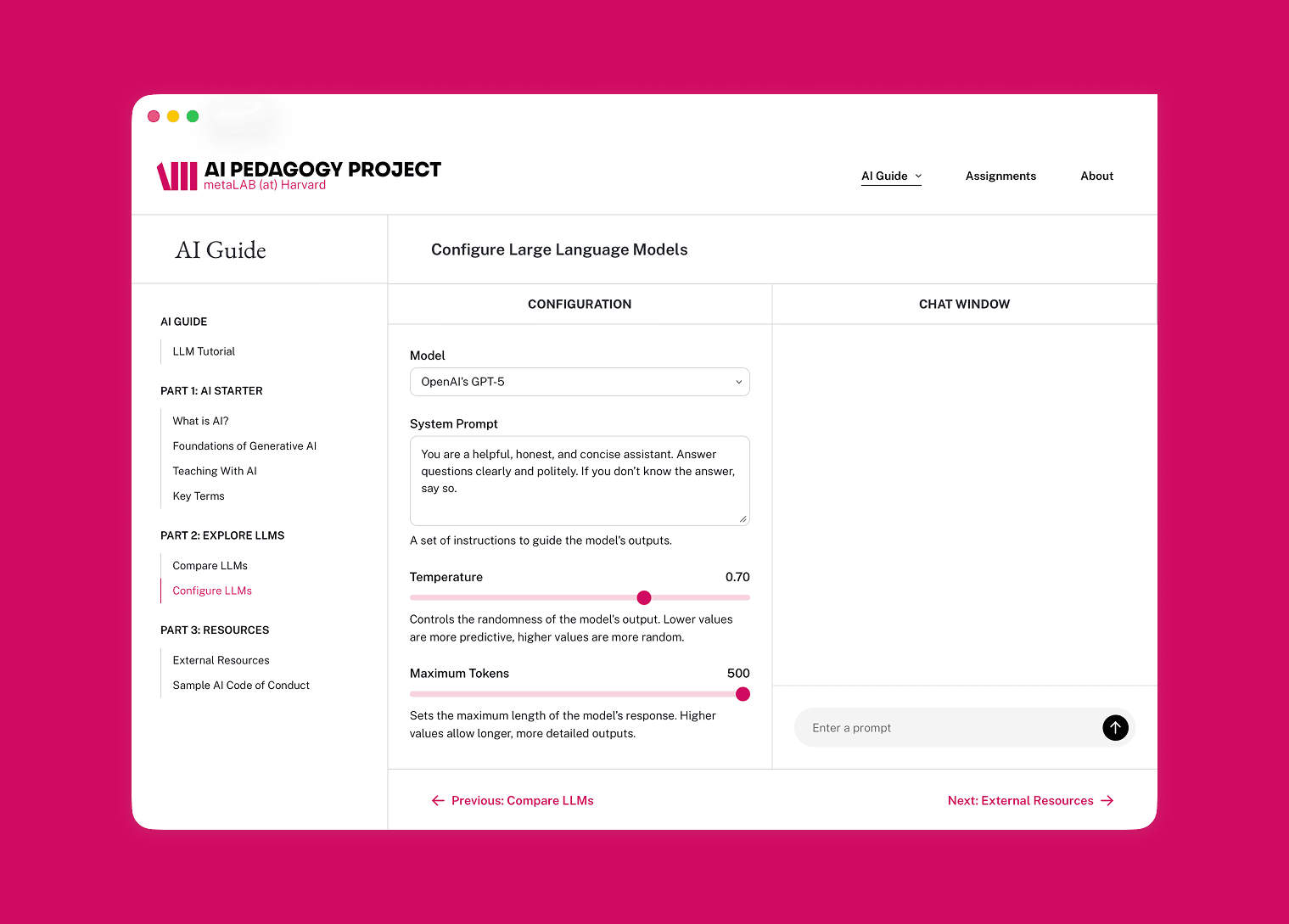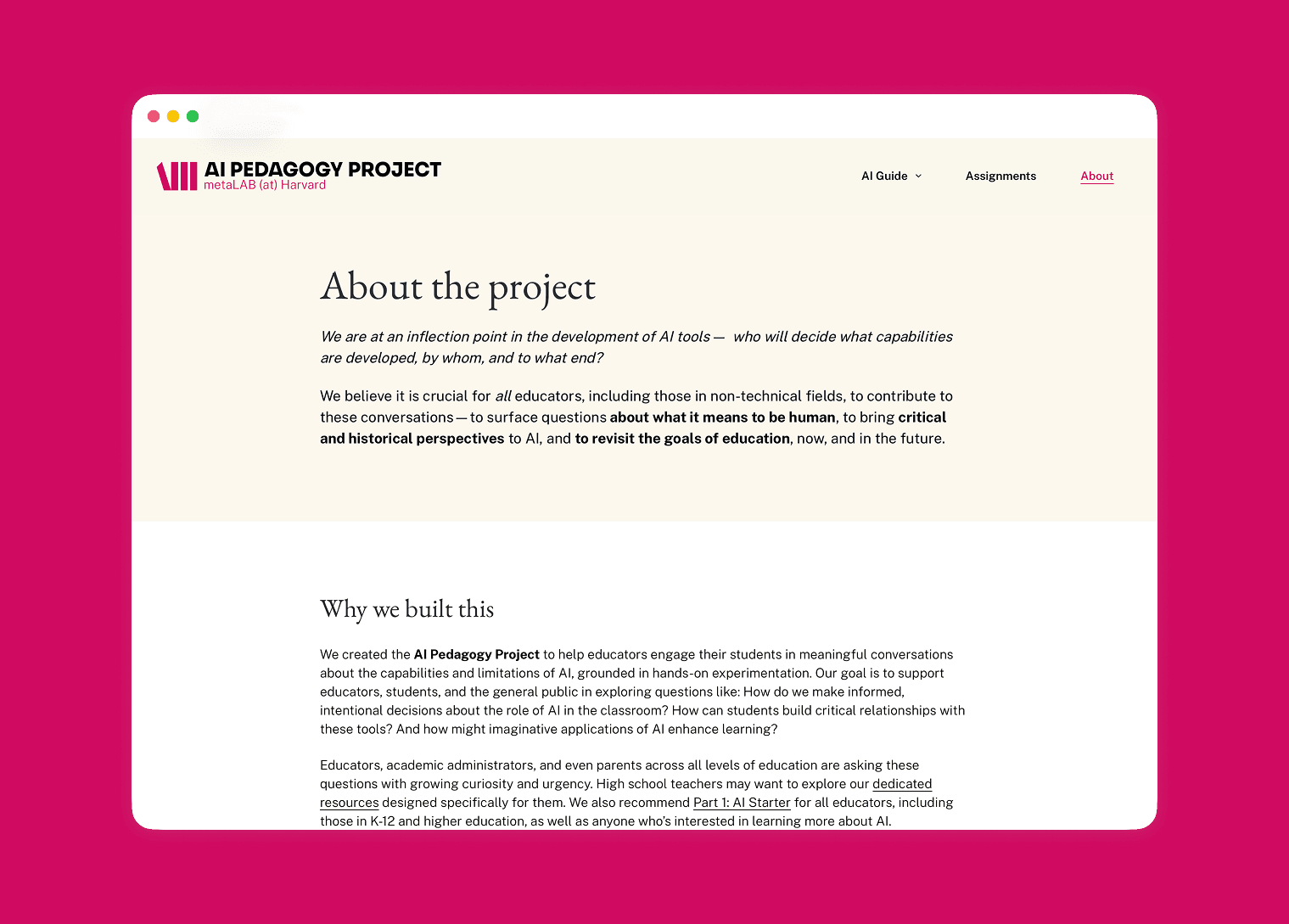AI Pedagogy Project
Creative and critical engagement with AI in education
Now is a time when the humanities can do what the humanities do best: surface foundational questions about what it means to be human, attend with precision to the importance of language and translation, contend with the ethics of ownership, authorship, rights, and agency.- Time
- Location
- Cambridge, USA & Virtual
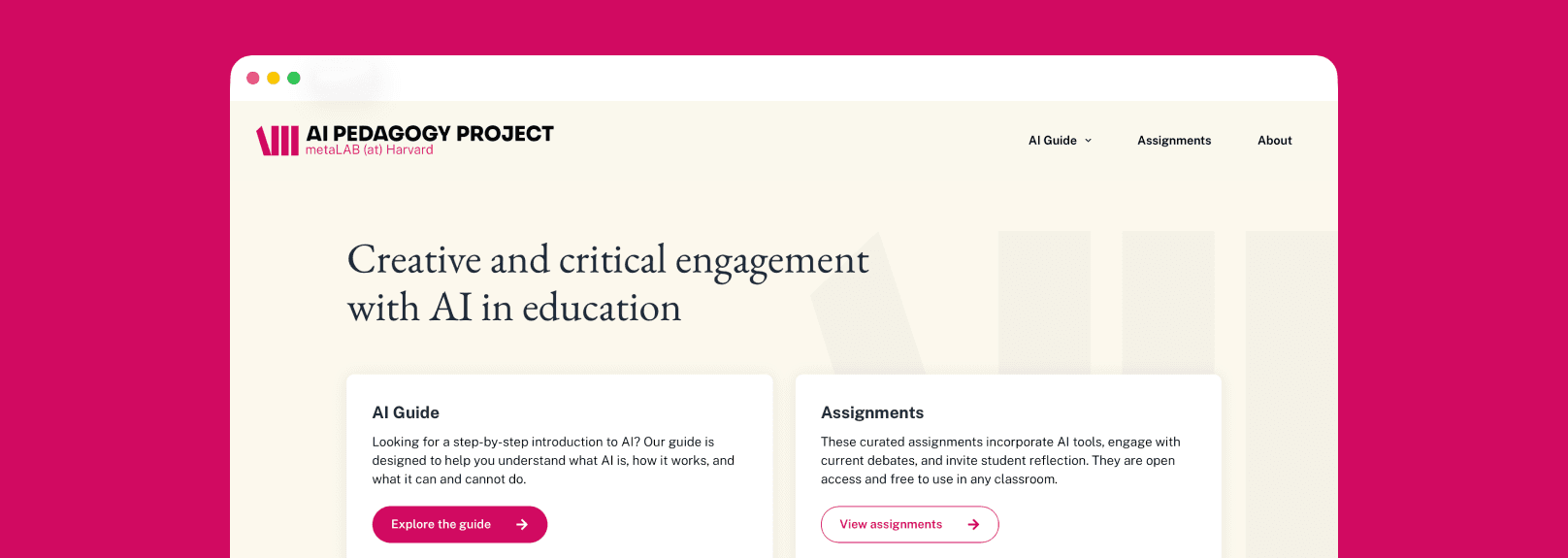
As AI tools explode into public conversation, there is a clear need for an informed, critical, and multidisciplinary analysis of their applications, limitations, and risks, both in the current moment and looking towards the future. At the same time, for those without technical expertise, it is often unclear how to engage productively in these conversations. Within education and institutions of higher learning in particular, this is a time when the gap between technical and non-technical fields could grow even more. It is also a time when the humanities could do what the humanities do best: surface foundational questions about what it means to be human, attend with precision to the importance of language and translation, contend with the ethics of ownership, authorship, rights, and agency.
The AI Pedagogy Project is a curated collection of classroom assignments, designed to help educators facilitate critical conversations with their students about the capabilities and limitations of AI. As public access to AI tools has increased, so has the concern about their role in education. The AI Pedagogy Project is our response to the following challenges: How do we concretely and responsibly support teachers to address the role of AI in the classroom? How do we support students in developing critical relationships with these tools while enhancing their education?
The AI Pedagogy Project will take shape as an open repository of curated assignments, activities, and prompts that educators can leverage within their classrooms to initiate some of these conversations – a resource to help support disparate fields in contributing critical perspectives to societal and ethical debates about the governance, ethics, and design of AI tools and systems.
We believe that regardless of discipline or technical background, every educator should be equipped to think through how AI will affect their teaching or their discipline more broadly, and what that impact will be on their students. Now more than ever, there is a need for collaboration and exchange between STEM and the arts and humanities. This collection will continue to evolve alongside the ever-changing AI landscape. We invite you to join us by using these materials, contributing your own, sending feedback, and sharing this resource with fellow educators.
You might also like to read metaLAB’s “Proposed Harvard AI Code of Conduct” drafted between April-July 2023 by metaLAB staff and Harvard students. You can check out the code of conduct here.
